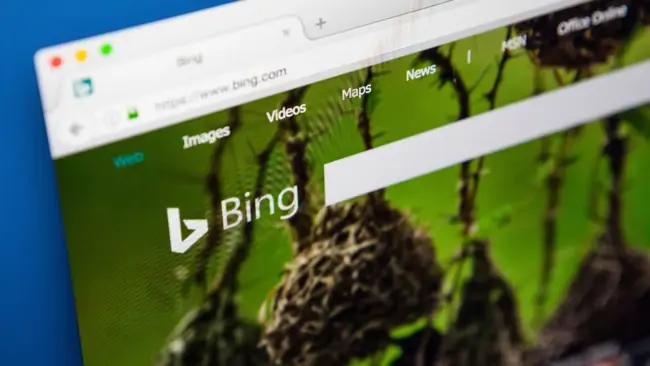Microsoft is reportedly preparing to launch a new, ChatGPT-powered version of Bing in an effort to challenge Google’s long-standing dominance in the search industry.
According to a report in The Information, the feature is set to be added before the end of March and will incorporate OpenAI’s generative AI technology to allow Bing to answer queries directly rather than just producing a list of search results.
Bing has been a distant second to Google since its release in June 2009, but this latest move could give Microsoft’s search engine new momentum as it becomes the first search engine to fully employ generative AI systems in search.

Industry leaders have speculated that this new, AI-powered approach to search could reshape the search industry and ultimately break Google’s long-lasting chokehold on the market.
Microsoft has already poured $1 billion into OpenAI to allow for the commercialisation of its software, in turn allowing it to leverage the potential of its developments for its own products.
Elon Musk and Sam Altman first established OpenAI as a research institute in 2015, but it is only over the past few years that its technologies have advanced far enough to spark the attention of giant corporations like Microsoft.
Last year, the tech giant announced it would add OpenAI’s image generator Dalle-E 2 to its new Designer app and Bing’s image creator tool following its popularity upon release.
The fight for AI is upon us
When OpenAI released its latest iteration ChatGPT model at the end of last year, it brought artificial intelligence to the mainstream and gave the world a taste of generative AI’s potential.
ChatGPT is able to rapidly generate accurate and human-like responses to queries on almost any topic using a large language model called GPT-3.5 and extracting data from the web.
It is not yet clear exactly how the Bing search engine will integrate ChatGPT, but the move alone demonstrates Microsoft’s eagerness to make the first move in the generative AI arena.
ChatGPT coming to Bing
— Marques Brownlee (@MKBHD) January 4, 2023
DALL-E coming to Bing
I never thought I’d say this, but… bring on the Bing comeback https://t.co/SqkcGJQxyx
Google, on the other hand, remains tentative. The tech giant has said it won’t immediately launch its own counterpart because of the “reputational risk” posed by generative AI chatbots.
Google’s various AI language models are just as capable as those used by ChatGPT, and it has been using the technology to improve search – but not replace it.
Microsoft’s decision to take its own plunge into AI, however, may be what pushes Google in making a move if it wishes to keep pace.
Paul Buchheit, an original developer of Gmail, admitted that “Google may be only a year or two away from total disruption” when “AI will eliminate[s] the search engine result page, which is where they make most of their money” in a tweet last year.
“The old search engine backend will be used by the AI to gather relevant information and links, which will then be summarised for the user,” he added.
“It's like asking a professional human researcher to do the work, except the AI will instantly do what would take many minutes for a human,” Buchheit explained.
Are we truly ready for generative AI?
Despite generative AI’s promise for the future of online search, Microsoft’s approach to implementing the chatbot will be key in determining its success in the early stages of Bing’s transformation.
OpenAI’s own CEO, Sam Altman has reiterated several times that the technology remains “an early demo of what’s possible,” warning companies that “it’s a mistake to be relying on [ChatGPT] for anything important right now.”
The problem with generative AI software like ChatGPT – which is why tech firms like Google have remained cautious – is the technology's reliance on data-led decision-making.
OpenAI has warned that ChatGPT "may occasionally generate incorrect or misleading information” due to it constructing its conclusions from online databases that together lack context and social coherence.
Yes, ChatGPT is amazing and impressive. No, @OpenAI has not come close to addressing the problem of bias. Filters appear to be bypassed with simple tricks, and superficially masked.
— steven t. piantadosi (@spiantado) December 4, 2022
And what is lurking inside is egregious. @Abebab @sama
tw racism, sexism. pic.twitter.com/V4fw1fY9dY
Many users online have shared their negative experiences when using ChatGPT’s chatbot, reporting racial and gender biases and the tendency to produce false information as fact. Users have shared a series of scary conversations with Bing's ChaGPT-enabled AI due to these data biases.
These limitations will likely limit Microsoft’s integration of ChatGPT in Bing’s search process, with multiple tests to understand if the technology, and more importantly the world, is ready.
To read more about generative AI, visit our dedicated AI in the Enterprise Page.




Comments ( 1 )
Daniel Rowe
06/01/2023